News archive for 2016
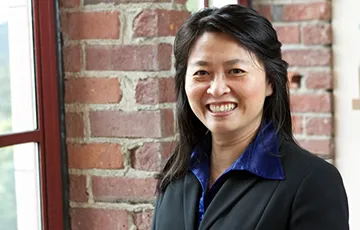
Mon, 12/19/2016 | UW Today
UW researcher pursues synthetic ‘scaffolds’ for muscle regeneration
Miqin Zhang, a professor in UW MSE, is looking for ways to help the body heal itself when injury, disease or surgery cause large-scale damage to one type of tissue in particular: skeletal muscle. Muscles have a limited ability to regenerate, repair and realign themselves properly after certain types of damage.
Zhang and her team are taking a synthetic approach to muscle regeneration. Their goal is to create a synthetic, porous, biologically compatible "scaffold" that mimics the normal extracellular environment of skeletal muscle &mdash' onto which human cells could migrate and grow new replacement fibers.
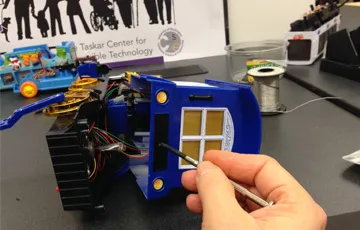
Wed, 12/07/2016 | UW Today
Volunteers hack toys for children with disabilities at UW Dec. 11
The Taskar Center for Accessible Technology is hosting the TCAT Hack for Access: Holiday Toy event at the CoMotion MakerSpace on Dec. 11 from 10 a.m. to 1 p.m. Volunteers will adapt toys to make them accessible for children with disabilities. Many off-the-shelf toys have difficult-to-access buttons or inputs that can be replaced with switches that are easier to operate. The event is an opportunity for community members to learn about the adaptive needs of people with disabilities, and to gain hands-on experience in toy adaptation.
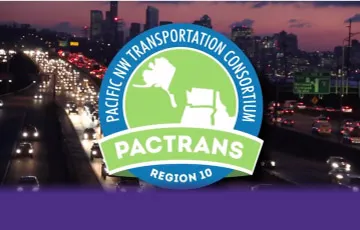
Tue, 12/06/2016 | UW Today
USDOT awards $14M for mobility research at UW-led transportation centerThe U.S. Department of Transportation has awarded approximately $14 million over five years to a multi-university, regional transportation center led by the University of Washington to fund research aimed at improving the mobility of people and goods across the Pacific Northwest.
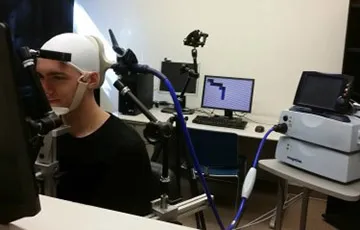
Mon, 12/05/2016 | UW Today
No peeking: Humans play computer game using only direct brain stimulationTest subjects in a UW experiment navigated simple mazes based solely on inputs delivered to their brains by a magnetic coil placed at the back of the skull, showing how humans can interact with virtual realities via direct brain stimulation.
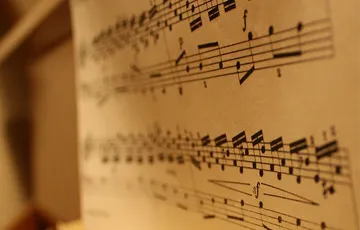
Wed, 11/30/2016 | UW Today
What makes Bach sound like Bach? New dataset teaches algorithms classical music
University of Washington researchers have released a classical music dataset called MusicNet. MusicNet is the first publicly available large-scale classical music dataset with curated fine-level annotations. It’s designed to allow machine learning researchers and algorithms to tackle a wide range of open challenges — from note prediction to automated music transcription to offering listening recommendations based on the structure of a song a person likes.
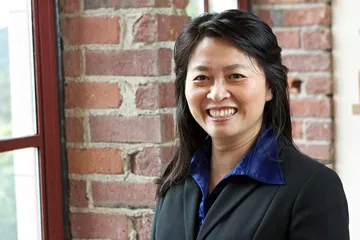
Tue, 11/29/2016 | UW Today
In one-two punch, researchers load ‘nanocarriers’ to deliver cancer-fighting drugs and imaging molecules to tumorsMSE professor Miqin Zhang leads research on a new system to encase chemotherapy drugs within tiny, synthetic “nanocarrier” packages, which could be injected into patients and disassembled at the tumor site to release their toxic cargo. “Our nanocarrier system is really a hybrid addressing two needs — drug delivery and tumor imaging,” said Zhang, senior author on a paper published Sept. 27 in the journal Small. “First, this nanocarrier can deliver chemotherapy drugs and release them in the tumor area, which spares healthy tissue from toxic side effects. Second, we load the nanocarrier with materials to help doctors visualize the tumor, either using a microscope or by MRI scan.”
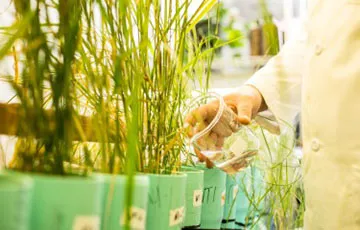
Tue, 11/22/2016 | UW Today
New grasses neutralize toxic pollution from bombs, explosives and munitionsUW engineers have developed transgenic grass species that can eliminate RDX, a toxic compound widely used in explosives that contaminates military bases, battlegrounds and some drinking water wells.
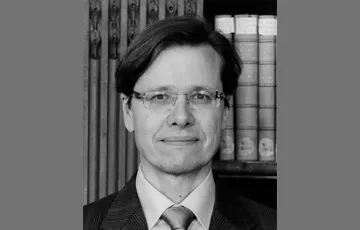
Thu, 11/03/2016 | UW Today
Electrical engineering lecture series to explore 'compressed sensing'In the last decade, the signal-processing technique of compressed sensing has delivered notable speedups in medical imaging, from pediatric MRI to dynamic cardiac imaging. As part of the 2016 Lytle Lecture Series, Professor David Donoho discussed how we can bridge the gap between compressed sensing theory and practice.
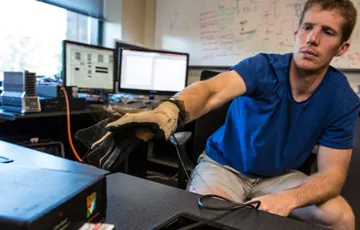
Wed, 10/26/2016 | UW Today
For the first time in humans, researchers use brain surface stimulation to provide ‘touch’ feedback to direct movementA two-way communication loop is necessary to restore movement for people with spinal cord injuries. The brain must be able to send signals to disconnected nerves and muscles, and it also must be able to receive feedback from these nerves. Researchers at the Center for Sensorimotor Neural Engineering (CSNE) have used direct stimulation of the human brain surface to provide basic sensory feedback through artificial electrical signals, enabling a patient to control movement while performing a simple task: opening and closing his hand.
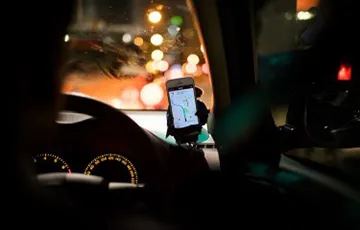
Mon, 10/24/2016 | UW Today
Uber service faster in low income Seattle neighborhoods, initial study findsYour wait time for an Uber ride in Seattle is shorter if you are in a lower income neighborhood, UW researchers concluded while researching whether Uber was providing equitable access for all their customers.
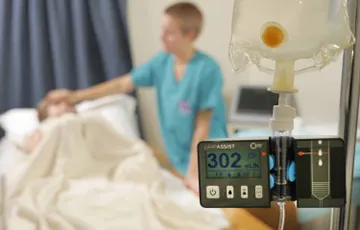
Mon, 10/24/2016 | UW Today
HCDE professor’s invention wins Popular Science 2016 ‘Best of What’s New’ awardAn IV drip technology developed by Shift Labs, founded by University of Washington Human Centered Design and Engineering Professor Beth Kolko, has been recognized by Popular Science with a 2016 “Best of What’s New” Award. The magazine recognized the company’s DripAssist Infusion Rate Monitor, a simple, compact device that clips to any IV drip to monitor the rate at which medication or fluids are delivered.
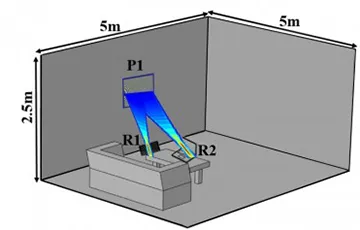
Mon, 10/24/2016 | UW Today
Turning your living room into a wireless charging stationA flat-screen panel that resembles a TV on your living room wall could one day remotely charge any device within its line of sight, according to new research.
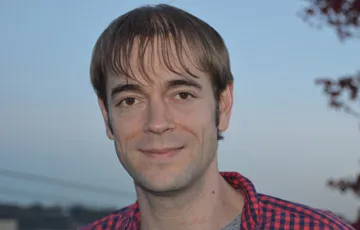
Fri, 10/21/2016 | UW Today
Research in complex computational problems snares Packard honors for UW’s Thomas RothvossComputer Science & Engineering assistant professor Thomas Rothvoss has been award the prestigious Packard Foundation Fellowship. This fellowship will help support Rothvoss' research to balance precision and efficiency in complex mathematical calculations.
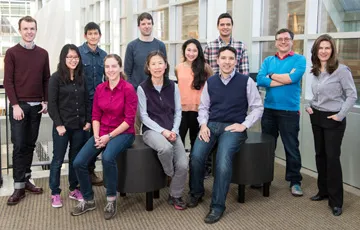
Wed, 10/19/2016 | UW Today
Popular Science picks DNA data storage project for 2016 'Best of What’s New' AwardPopular Science has recognized a technique developed by UW and Microsoft researchers to store and retrieve digital data in DNA as one of the most innovative and game-changing technologies of the year. In July, the UW Molecular Information Systems Lab broke the world record for the amount of DNA successfully encoded and retrieved in DNA molecules, using a novel approach to converting the long strings of ones and zeroes in digital data into the four basic building blocks of DNA sequences.
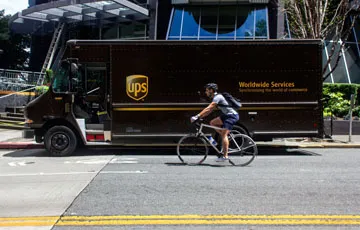
Wed, 10/12/2016 | UW Today
As online retailing booms, new Urban Freight Lab to work with industry, SDOT on delivery challenges
The new Urban Freight Lab will investigate high-impact, low-cost solutions for businesses delivering goods in urban settings and cities trying to manage limited curb and parking space where delivery trucks, bicycles, pedestrians and cars all need to coexist. The lab is part of the Supply Chain Transportation & Logistics Center and will collaborate with the Seattle Department of Transportation and three founding industry members: Costco, Nordstrom and UPS. The first research question the lab will investigate is the “final 50 feet” challenge, or the final leg of the delivery journey.
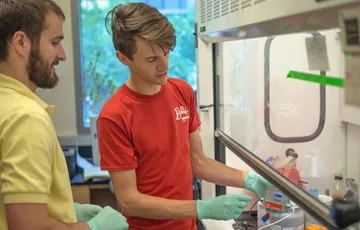
Wed, 10/12/2016 | College of Engineering
Bioengineers without Borders seeks to provide anesthesia delivery devices to developing countriesEngineering students involved in Bioengineers without Borders are seeking to create anesthesia delivery devices for use in developing countries. Existing anesthesia delivery methods are not suitable for resource-poor regions because they are costly and require stable access to power and oxygen. The lack of access to anesthesia prevents crucial medical from being performed, but Bioengineers without Borders aims to solve this problem with their affordable, portable devices.
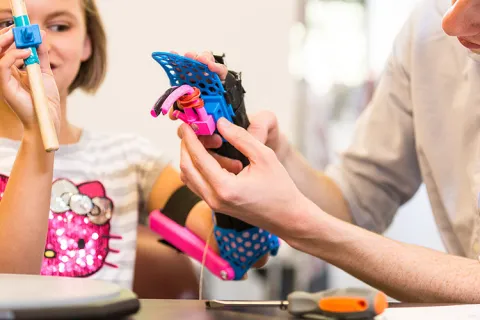
Thu, 10/06/2016 | UW News
Helping the body health, feel and move againFrom the Ability & Innovation Lab to the Center for Neurotechnology, the College of Engineering is innovating novel devices to help people of all abilities live out their dreams.
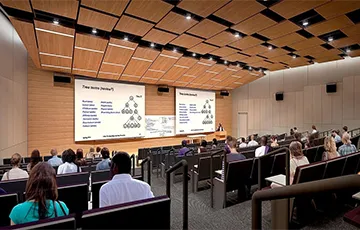
Thu, 10/06/2016 | UW Today
CSE gets major boost with $10 million donation from Amazon
Amazon is giving a major push to the campaign to build a second Computer Science & Engineering building on the UW Seattle campus with a $10 million gift. The new 130,000-square-foot UW CSE building will provide space for the UW to double the number of computer science and engineering graduates annually.
According to the Washington Student Achievement Council, the workforce gap in computer science – the gap between available jobs and prepared graduates – is far greater than in any other field. At the UW, student demand far outstrips program capacity: more incoming UW freshmen list CSE as their first choice major than any other field, and UW CSE currently can accommodate just one out of three qualified students who apply to the major.
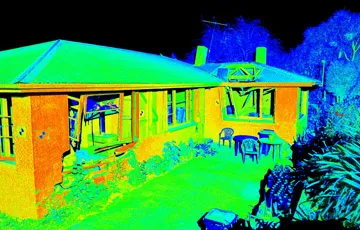
Wed, 10/05/2016 | UW Today
$4M grant funds new UW RAPID Facility to investigate natural disasters worldwideA new Post-Disaster, Rapid Response Research Facility funded by a $4.1 million National Science Foundation grant will provide necessary tools to collect and assess critical post-disaster data. Following a natural disaster, cleanup efforts quickly erase valuable evidence. The tools at the new RAPID facility will allow researchers to gather detailed information immediately after a disaster, so it can later be analyzed to improve building and preparedness practices.
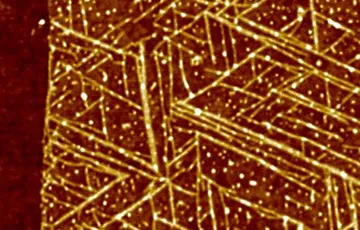
Mon, 10/03/2016 | UW Today
New protein bridges chemical divide for ‘seamless’ bioelectronics devicesIn a paper published Sept. 22 in Scientific Reports, engineers at the University of Washington unveiled peptides — small proteins which carry out countless essential tasks in our cells — that can provide a link between the biochemistry of our bodies and the chemistry of implanted devices.

Mon, 10/03/2016 | UW Today
Engineering lecture series focuses on building safe, resilient communitiesOver the next month, College of Engineering’s annual fall lecture series will feature faculty focusing on developing technologies to build more resilient urban communities. The three lectures – on earthquake resiliency, sustainable transport of goods and emerging technologies for safe, clean water — are free and open to the public, but seating is limited and registration is required.
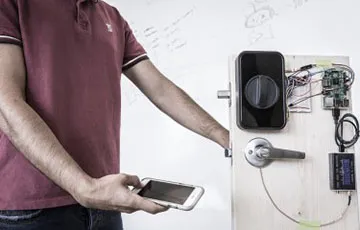
Tue, 09/27/2016 | UW Today
Secure passwords can be sent through your body, instead of airUniversity of Washington computer scientists and electrical engineers have devised a way to send secure passwords through the human body — using benign, low-frequency transmissions generated by fingerprint sensors and touchpads on consumer devices.
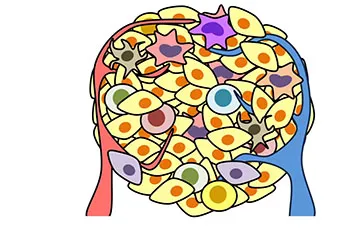
Mon, 09/19/2016 | UW Today
UW wins national nanotechnology startup challenge for breast cancer treatmentResearchers at the University of Washington are among the winners of a startup challenge to shorten the transition time from lab bench to patient. The team, including members of professor Suzie Pun‘s research group in the UW Department of Bioengineering, was selected based on its proposal and business plan to develop a targeted drug delivery system for breast cancer.

Mon, 09/12/2016 | UW Today
Graduate education in clean energy due for ‘big data’ overhaulCE Professor Jim Pfaendtner is leading a new endeavor funded by the National Science Foundation to bring big data to graduate education in clean energy research at the UW. Known as DIRECT — or Data Intensive Research Enabling Clean Technologies — this traineeship will phase in practical, data-driven research projects for graduate students in fields such as chemistry, renewable energy and chemical engineering.
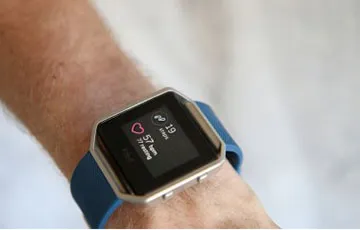
Thu, 09/08/2016 | UW Today
Life after Fitbit: Appealing to those who feel guilty vs. freeIs life better or worse after sticking your Fitbit in a drawer? UW researchers surveyed hundreds of people who had abandoned self-tracking tools and found emotions ranged from guilt to indifference to relief that the tracking experience was over.